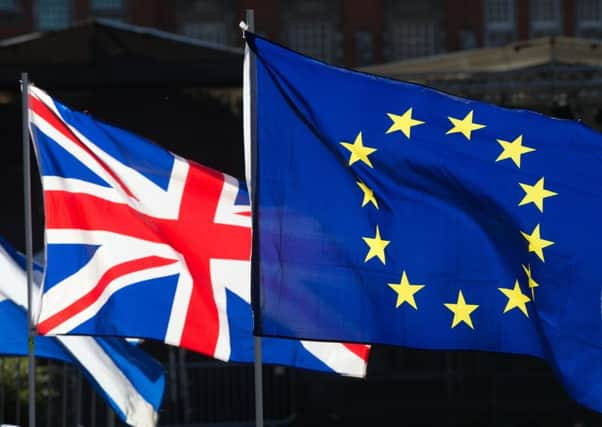More EU citizens registering for NI numbers in Scarborough since Brexit vote


Oxford University’s Migration Observatory said the falling value of the pound and political uncertainty are likely factors behind the drop in numbers.
Department for Work and Pensions statistics show that 504 adults from EU countries registered for NI numbers in the year to June.
Advertisement
Hide AdAdvertisement
Hide AdThey are required by foreign nationals if they want to work or claim benefits in the UK.
In the 12 months to June 2016, the month of the referendum, 466 people registered.
The rise bucks the trend across the UK, where NI allocations to people from the 27 other member states went down by 29%, to around 448,000.
Madeleine Sumption, director of Oxford University’s Migration Observatory, said: “The sharp fall in EU migration since the referendum is likely to result from some combination of the falling value of the pound, political uncertainty and an improving economic outlook in EU countries of origin.”
Advertisement
Hide AdAdvertisement
Hide AdThe growth in EU registrations for NI numbers in Scarborough contributed to an overall rise in overseas nationals seeking to work or claim benefits in the area.
In the year to June, there were 572 registrations in Scarborough, compared to 514 in the 12 months to June 2016.
The non-EU region with the highest number of registrations in Scarborough was South Asia – 12 people were handed an NI number.
Ms Sumption said non-EU migrants tend to do more skilled jobs than EU workers, because it is difficult for them to get visas for low-paid work.
Advertisement
Hide AdAdvertisement
Hide AdShe added: “One consequence of the recent shift in where migrants are coming from is likely to be a slower growth in the number of migrants in low and middle-skilled jobs.”
The DWP says the figures should not be used to indicate immigration levels, as foreign nationals could have been in the country for some time before applying.
The statistics include students working part-time, and include all workers regardless of their length of stay in the UK.